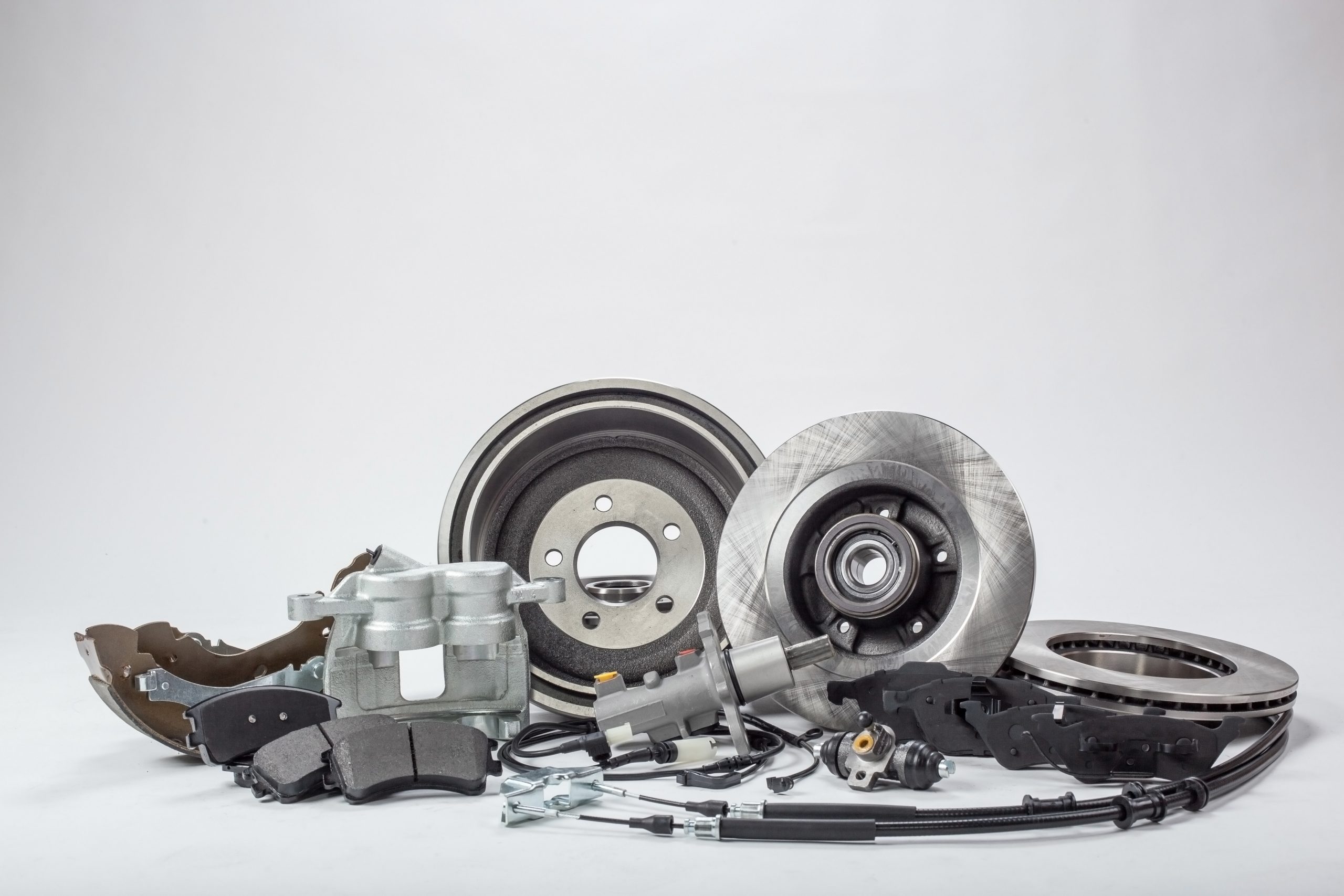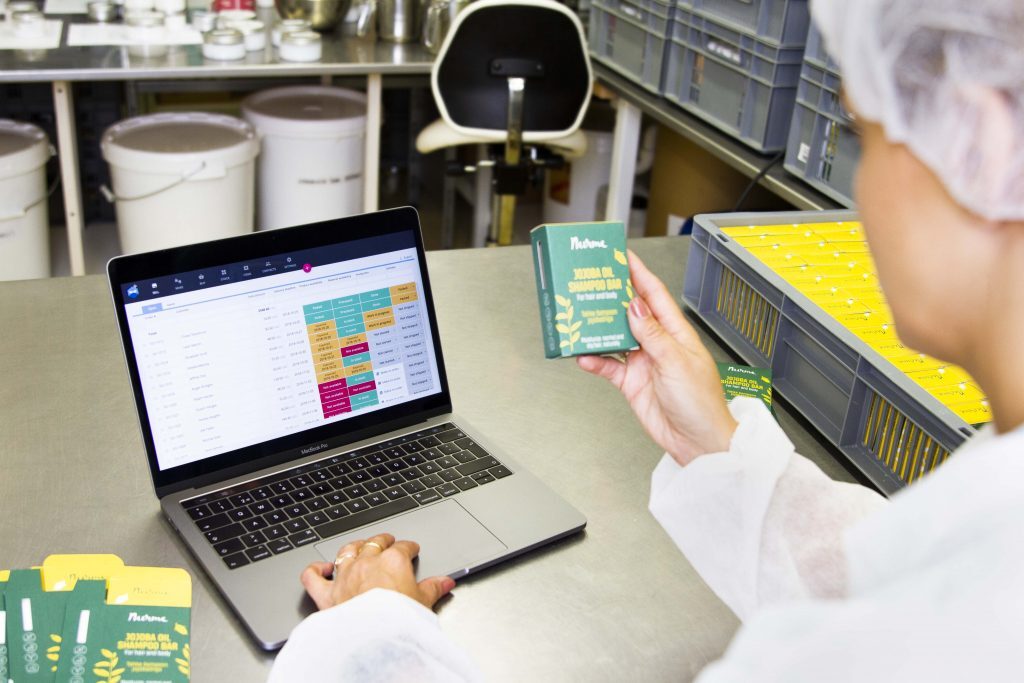Manufacturer part number for efficient product identification
An MPN, or Manufacturer Part Number, is a unique alphanumeric code assigned by a manufacturer to identify a specific product or component within their inventory. Learn where and how to use them.

Henry Kivimaa

In the world of manufacturing and supply chain management, effective product identification is essential for streamlined operations and successful business transactions. One crucial element in this process is the manufacturer part number.
This blog post delves into the world of manufacturer part numbers, exploring what they are, why they are important, and how they are utilized across industries.
We’ll uncover the essential role MPNs play in product identification, inventory management, procurement, and supply chain coordination. By the end, you’ll have a comprehensive understanding of MPNs and their impact on optimizing your manufacturing and distribution processes.
What is a manufacturer part number?
A manufacturer part number (MPN) is a unique alphanumeric code assigned by a manufacturer to identify a specific product or component. It is used primarily for part tracking in inventory management, supply chain operations, and ordering purposes. These are often visible on the product label or even etched directly into the item itself.
The manufacturer number serves as a reference that distinguishes a particular item from others in the manufacturer’s product line or inventory.
The format and length of an MPN can vary depending on the manufacturer. It may consist of letters, numbers, or a combination of both. Some include additional information such as version numbers, revisions, or product variants. These codes help ensure accuracy and precision in identifying and sourcing the correct item.
Manufacturer part numbers are widely used across industries, including:
- Manufacturing
- Electronics
- Automotive
- Aerospace
Manufacturer part numbers facilitate effective communication and coordination between suppliers, distributors, and customers when searching for, ordering, or replacing specific parts or products.
Download the ultimate guide to inventory management e-book
A comprehensive e-book with everything you need to know about inventory management.
Why are MPNs important?
Manufacturer part numbers are important for several reasons, including:
- Product identification
- Inventory management
- Supply chain efficiency
- Product substitution and replacement
- Warranty and support
- Cross-referencing and interoperability
Let’s cover these in more detail.
Product identification
MPNs uniquely identify a specific product or component manufactured by a company. With numerous products in the market, having a distinct identifier helps avoid confusion and ensures the accurate identification of the desired item.
Inventory management
MPNs play a crucial role in tracking and managing inventory for manufacturers, suppliers, and distributors. By associating each product with a unique manufacturer number, it becomes easier to monitor stock levels, reorder items, and prevent stockouts or overstock situations.
Supply chain efficiency
MPNs enable efficient communication and coordination within the supply chain. When suppliers and manufacturers use standardized MPNs, it becomes simpler to exchange information, place orders, and ensure the correct products are delivered to the right locations.
Product substitutions and replacements
In cases where a specific product is unavailable or discontinued, MPNs help identify suitable substitutes or compatible replacements. By referencing the MPN, customers or suppliers can find alternative options that meet their requirements.
Warranty and service support
MPNs are often referenced in warranty information and service manuals. When customers need to request warranty support or seek service for a specific product, providing the MPN ensures accurate identification and helps streamline the repair or replacement process.
Cross-referencing and interoperability
MPNs can be used for cross-referencing and compatibility checks between different manufacturers’ products. In industries where components need to work together, such as electronics or automotive, MPNs facilitate the identification of compatible parts from various sources.
Overall, MPNs streamline inventory management, enhance supply chain efficiency, and simplify product identification, ultimately contributing to improved customer satisfaction, faster order fulfillment, and smoother operations within the manufacturing and distribution processes.
Cloud-based manufacturing platform product tracking
Book a demo to get all your questions answered regarding Katana’s features, integrations, pricing, and more.
How are MPNs used?

Manufacturer part numbers (MPNs) are used in various ways across different industries and sectors. Here are some common uses of MPNs:
- Procurement and ordering — MPNs are used to identify and order specific products or components from suppliers during the procurement process. When placing orders, buyers reference the MPN to ensure they purchase the correct item.
- Inventory management — MPNs are essential for inventory management systems. They are used to track stock levels, monitor inventory movement, and perform accurate stock counts. MPNs help identify which products are in stock, which need replenishment, and which may require discontinuation.
- Product catalogs and databases — Manufacturers maintain catalogs or databases that include information about their products, along with corresponding MPNs. These catalogs provide detailed specifications, descriptions, and pricing information for each item, making it easier for customers and suppliers to search for and select the right product.
- Cross-referencing and substitution — MPNs are used to cross-reference products from different manufacturers. This helps customers find compatible or equivalent products when the original item is unavailable or discontinued. By matching MPNs, customers can identify alternative options that meet their needs.
- Warranty and service support — When customers require warranty support or service for a product, they may be asked to provide the MPN. This ensures accurate identification of the item and helps the manufacturer or service provider offer the appropriate assistance, such as repairs, replacements, or technical support.
- Product research and comparison — Customers and engineers often use MPNs for research and comparison purposes. By searching for MPNs online or through product catalogs, they can gather detailed information, compare specifications, and make informed decisions when selecting the right product for their specific requirements.
- Supply chain management — MPNs are used throughout the supply chain to facilitate communication, coordination, and traceability. Suppliers, distributors, and logistics providers use MPNs to accurately identify and track products as they move from the manufacturer to the end customer.
Let’s move on and see what alternatives there are to manufacturer numbers.
What are the alternatives for MPNs?
While manufacturer part numbers are widely used and standardized in many industries, there are alternative identification systems and approaches that serve similar purposes, like:
- Universal product codes (UPCs)
- International standard book number (ISBN)
- Serial numbers
- Industry-specific codes
- Custom part numbers
Universal product codes (UPCs)
UPCs, a type of barcode, are widely used in retail and distribution settings. They consist of 12 parallel lines encoded with product information. UPCs are scanned at point-of-sale or during inventory management to identify products quickly. While they don’t provide as much specific information as MPNs, they serve as unique identifiers for tracking and inventory purposes.
International standard book number (ISBN)

ISBNs are specific to books and serve as unique identifiers for publications. They are widely used in the publishing industry to identify and track books, ensuring accurate inventory management, sales tracking, and library cataloging.
Serial numbers
Serial numbers are unique identifiers assigned to individual product units during manufacturing. Serial number tracking is mostly used in electronics, appliances, and automotive inventory management to track specific units and enable product warranties, services, and recalls. Serial numbers provide a unique identifier for each item, allowing manufacturers and customers to trace its history and identify specific units.
Industry-specific codes
Some industries have their own specific coding systems tailored to their needs. For example, national stock numbers (NSNs) are used in the defense industry to identify and track military equipment and supplies. Similarly, unique device identifiers (UDIs) are used in the healthcare and medical device industry to provide unique identification for medical devices.
Custom part numbers
In some cases, manufacturers or suppliers use their own internal part numbering systems to identify products. These custom part numbers may be specific to a particular company and not standardized across the industry. While they may lack universal recognition, they serve the purpose of unique identification within the organization.
It’s important to note that the use of MPNs is quite prevalent and widely accepted in various industries due to their standardized approach and compatibility across different organizations. However, in specific contexts or industries, alternative identification systems may be employed to meet the unique requirements of those sectors.
Step up your inventory tracking with Katana

Katana is a robust cloud-based manufacturing and inventory management software designed to streamline operations for small and medium-sized businesses. It offers a range of features that help companies efficiently manage their production processes and inventory.
Katana’s real-time inventory tracking gives businesses accurate and up-to-date visibility into their stock levels. This allows users to monitor inventory levels, track materials and finished goods, and make informed decisions about purchasing and production.
With real-time insights, businesses can prevent stockouts, optimize reorder points, and ensure timely fulfillment of customer orders.
For more granular tracking, Katana supports batch and serial numbers.
Batch tracking allows businesses to assign and track groups of products or components manufactured or received together. This feature is handy in industries such as food and beverage, pharmaceuticals, and cosmetics, where traceability and quality control are critical.
Serial number tracking lets businesses identify specific items, really benefitting businesses in the electronics and automotive industries.
Katana offers seamless integrations with various business tools, like QuickBooks Online and Shopify, enabling smooth data flow and streamlined operations. It integrates with many different business systems, eliminating the need for manual data entry and minimizing the risk of errors.
By integrating with other software solutions, Katana enables businesses to centralize their data, automate processes, and enhance efficiency.
Want to see it in action? Get started by booking a demo and see how your business can benefit with Katnana.

Henry Kivimaa
Table of contents
Get inventory trends, news, and tips every month
Get visibility over your sales and stock
Wave goodbye to uncertainty with Katana Cloud Inventory — AI-powered for total inventory control